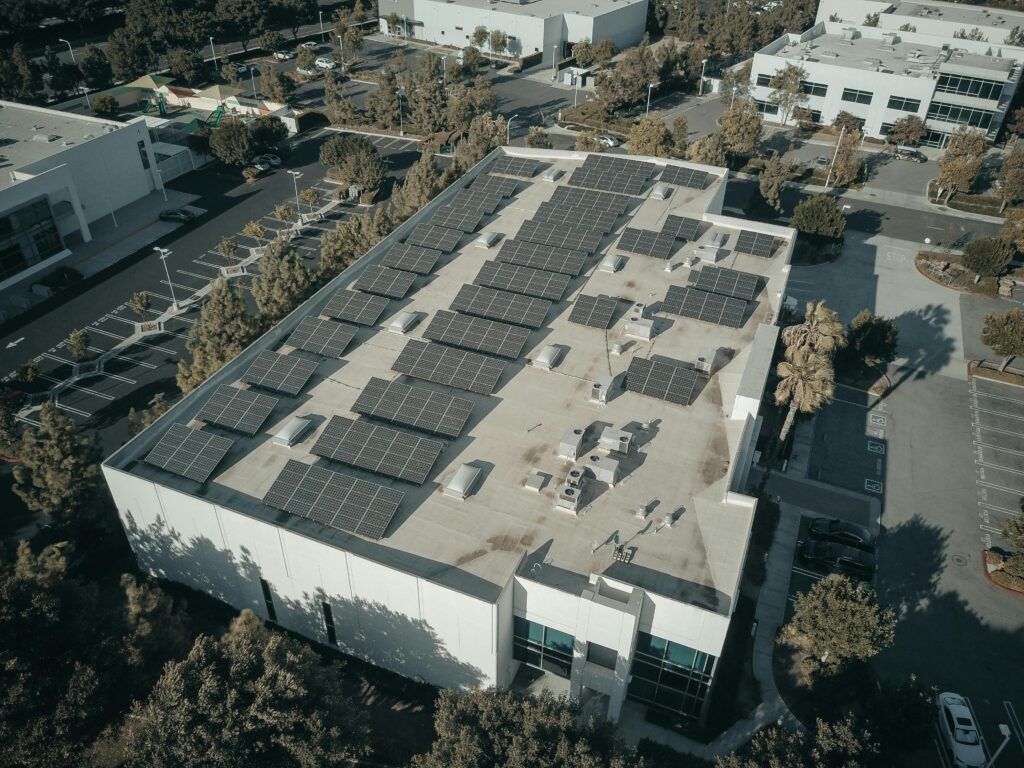The rooftop is the most perfect place for solar panel installations. Many homeowners and businesses leverage their rooftops for solar PV systems. However, solar panel installation could become challenging in rented residential, multi-occupancy, and commercial properties.
Rented or leased residences or business premises come under a law that does not allow tenants to own the roof, and such users will require permission for solar PV system installations on their rented premises. So, let’s explore what options renters and multi-story apartments have to go solar.
How to Go Solar as a Renter
One hassle-free way for renters to go solar is to opt for properties with already installed solar PV systems. However, if this is not the case as many apartments don’t have this option there are other ways to utilize solar power, so without further ado, let’s explore them:
Split Cost
Often homeowners are unwilling to invest in solar upgrades as it requires hefty initial investments and landlords think tenants will get benefits from their improved properties. However, they don’t realize an immediate financial benefit from this upgrade. This ‘homeowner-tenant’ challenge is called a ‘split incentive.’ It applies rooftop solar PV systems as much as any other property upgrades.
The solution for this conflict is a contract that divides benefits and costs between landlord and tenant can confound the split incentive. Both parties can consult their independent legal advisor for more information.
Solar Agreement for Tenants & Commercial Renters
Whatever the renter and owner negotiate, the terms should be documented in the occupancy agreement and legal guidance should be pursued by both sides. Such contracts should cover a wide range of issues containing:
- who will be liable for solar installation fees
- who will be responsible for repayments of solar loans
- who will own the solar system
- who will be responsible for solar system maintenance or repairs
- who will own the solar system electricity
- what will ensue at the end of the contract?
In some state governments, these rental property contracts are being assisted. Tenants and landlords can use online solar system calculators to check how rooftop solar may perform on a property. Also, various professional solar installers can assist in this regard. So, it is better to consult them and get expert advice.
If the landlord holds the property under any strata title that does not give them authority to use the roof for solar installations, then they will require a body corporate (a separate legal entity that can enter and maintain legal proceedings) permissions.
Solar For Townhouses, Units, and Apartments
As apartment buildings have one roof, it has always been extra challenging to install rooftop solar PV systems on these buildings. In this scenario, the body corporate probably possesses the apartment rooftop, and members of the body corporate may evaluate the benefits of rooftop solar for the apartment community.
Usually, the apartment roof is a shared space, and many people think it is equally distributed amongst occupants as this approach can avoid conflicts and inconvenience. Skyscrapers and tall buildings are more populated and need more space to install huge solar systems to cater to residents’ power needs. Technical contemplations like cranes, special cables, etc. can make the whole process more expensive to install solar PV systems on apartment blocks.
To some extent, these challenges may also apply, to units and townhouses as well. Again all these issues require permission from body corporations or the state to install solar on rooftops. So, renters need to check their state policies regarding solar for apartments, units, and townhouses.
Solar Panel Installation Options For Multi Occupancy Buildings
Many solar users own apartments, in this situation, they can communicate the benefits of going solar with their body corporate and convince them to install solar PV systems. Also, if the apartment owner rents it, it would be the first step.
Fortunately, many states and governments offer solar subsidies and rebates for apartment buildings. New solar users can capitalize on these offers to reduce initial investments.
Solar for Business Premises (Multi-Occupancy)
Multi-occupancy business properties also require body corporate permission to install solar PV systems on rooftops. Such premises include industrial or retail estates, shopping centers, co-work spaces, and offices. As these places require consistent power supply, rooftop solar systems can save big bucks on power!
Take Away
Solar power is the most efficient way to keep the environment clean and lower electricity bills. The good thing is that they are not high maintenance and require periodic cleaning and checkups. It is important to know that in case of any issue or problem with solar systems, homeowners are responsible for repairing, cleaning, and maintenance.
Also, in the case of solar panel depreciation on rental property, owners can claim 10% depreciation annually (there are different solar laws in different countries and states, so check them first as per your location).





























